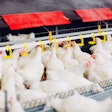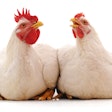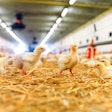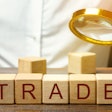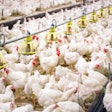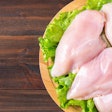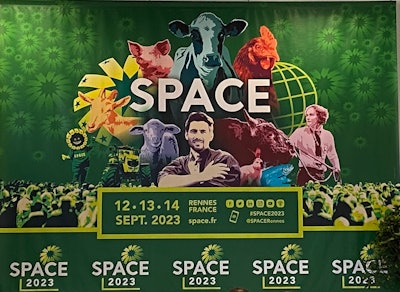
The French agricultural trade show SPACE took place in mid-September this year, playing host to over 1,200 exhibitors. As ever, the event offered numerous solutions and innovations to the industry issues, and, in particular, had a focus on energy.
Like farmers in numerous countries, French livestock producers have been suffering from rising energy costs. SPACE offered a new exhibition hall dedicated exclusively to energy and a revamped new technology hall, offering energy information.
Marcel Denieul, the event president, commented: "The energy crisis has enormous consequences for the farming industry. When production costs rise, farms struggle not only with energy but also with supplies such as fertilizer and feed. “
The issue was raised with visiting Agriculture Minister Marc Fresneau, but SPACE being SPACE, the issue was also the focus of protesters, who were concerned that the countryside itself could become more attractive for energy production and become the focus of large corporations.
For sovereignty must in prioritized in the country, the protestors argued, adding that livestock production should not be a sub-product of energy production. Producing methane, turning land over to produce fields swathes of solar panels and producing agrofuels will harm the future of small-scale farming and the future of rural generations to come.
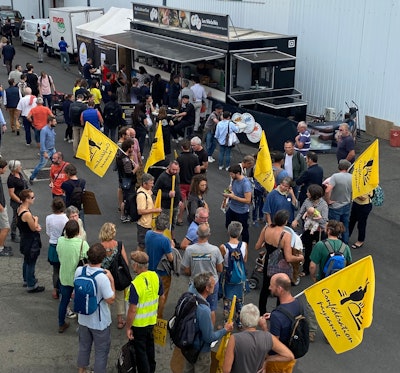 Protestors concerned by the possible take-over of the French countryside by energy companies. (Mark Clements)
Protestors concerned by the possible take-over of the French countryside by energy companies. (Mark Clements)
Poultry meat
The French poultry sector has not escaped rocketing energy prices, but they have been one of numerous issues negatively impacting the industry.
In 2022, poultry meat consumption decreased in France for the first time, falling by 0.4%. While the impact was most greatly felt among more minor species – ducks, turkeys and guinea fowl – chicken was not immune.
All sectors were affected by avian influenza (AI) and, in the case of broiler meat, this was largely the result of production restrictions and a shortage of day old chicks. For those that were able to produce, however, profit margins were maintained due to a lack of supply.
Per capita chicken meat consumption did, in fact rise over the year, growing by 5%, driven by higher imports.
According to bank Credit Agricole, looking to the future, of all meats, it will poultry that sees the greatest increase in consumption, particularly in chicken breast. However, despite the brighter outlook the sector is still not free from problems and production standards continue to be under debate.
The industry is said to be waiting for better clarity on standards and it is hoped that any new regulations adopted will not further erode the sector’s competitiveness.
Where AI is concerned, France will start vaccinating fattening ducks withing a couple of weeks. The industry is said to be confident that the initiative will be positive for the whole poultry sector.
Egg production
AI has had a far greater impact on the French egg industry. The country lost 3.5 million laying hens and 1 million pullets in 2022 – 9.5% of the layer population.
Cage production in France will end in 2030, but it was cage eggs that saw the biggest price increases at the beginning of this year and during 2022. Looking ahead, Credit Agricole expects market share of organic eggs to decline while those of free range and barn will increase.
It also notes the topic of chick sexing, where France has been a pioneer, appears to no longer of interest at European level.





